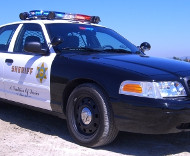9/4/2014
California Court Denies Sampling Of License Plate InformationCalifornia Superior Court judge refuses access to license plate camera data.

A California Superior Court judge last week denied privacy advocates access to a sample of data that are collected by automated license plate readers (ALPR, also known as ANPR in Europe). The plate-scanning technology has spread rapidly throughout the country largely from the availability of federal grant funds, but the American Civil Liberties Union (ACLU) and Electronic Frontier Foundation (EFF) argue the public needs to know in much greater detail how the information collected from motorists through these cameras is being used.
The suit cites the state law that says every citizen has a right to inspect any public record as the grounds for requesting a week's worth of camera information from August 12, 2012 to August 19, 2012.
Officials insist that they can use these cameras on public streets without a warrant because the devices merely observe what a human officer would be able to observe with his own eyes. When the ACLU and EFF requests came in, however, lawyers for the city and county of Los Angeles insisted that the information collected through the cameras should be considered "records of investigation" that would not be subject to a freedom of information request. The court presumed that ACLU and EFF are primarily interested in learning about police investigative techniques.
"Petitioners are not concerned about indiscriminate plate recording, but rather targeted recording in particular neighborhoods and locations," Judge James C. Chalfant wrote in his August 27 order. "Petitioners want to know where the mobile cameras were, what path they took, and what neighborhood the officer was in so they (Petitioners) can draw conclusions about law enforcement conduct. Their concern is that law enforcement may have conducted the targeted surveillance of automobiles in particular locations or neighborhoods which potentially is an abuse."
The judge compared this to asking for a video recording of detectives on the prowl for drug deals without actual knowledge beforehand who the dealers and buyers might be.
"While it is less clear that ALPR data from fixed point and random mobile car patrol cameras are records of investigation, the broad nature of the exemption for law enforcement investigatory records requires their inclusion," Judge Chalfant wrote. "A balancing of the public interests works in favor of non-disclosure. The ALPR data contains hot list comparisons the disclosure of which could greatly harm a criminal investigation."
Shawn Smith, president of Vigilant Solutions, which sells license plate cameras to police departments, celebrated the ruling.
"We fully understand and appreciate the privacy concerns of the ACLU and EFF," Smith said in a statement. "We too are focused on ensuring the privacy of innocent citizens but believe that offering ALPR data to the masses will achieve the exact opposite of what we are trying to accomplish."
The ACLU had a much more pessimistic reading of the outcome.
"If you think that sounds like a big, blank check to California police to build surveillance programs outside of public scrutiny, you're right," ACLU attorneys Jennifer Lynch and Peter Bibring wrote.
A copy of the order is available in a 1.5mb PDF file at the source link below.


